
Periodontal diseases are common ranging from simple gum inflammation to serious complications that may damage soft tissue and bone that supports the teeth. It may affect one tooth or many teeth and if left untreated it may even lead to tooth loss. A diagnosis is established by examining the soft tissues surrounding the teeth.
What causes gum disease are the bacteria that form sticky plaque on our teeth. However, there are some other causes that may affect our periodontal health:
Tobacco - already known as the cause of many health problems, it puts smokers at increased risk for gum diseases. Furthermore, recent studies have shown it may be the most considerable factor in development of these conditions!
Genetics - it is considered that 30% of population may be genetically preconditioned to gum disease. If these people don't get early treatment, not even the best oral hygiene habits can help them avoid the condition.
Puberty, pregnancy and menopause - hormonal changes in woman's body may influence many of the bodily tissues. Because of this, gums can get more sensitive and fitting for periodontal disease.
Stress - if we're under a lot of stress that may affect our immune system so that our bodies can't fight off infections efficiently including the infections caused by the bacterial plaque in our mouth.
Medications - especially oral contraceptives, anti-depressants and heart medicines can make it worse. If you're using any of these make sure to inform your dentist.
Clenching or grinding your teeth - an action we're usually unaware of. Maybe you already heard from someone, that you're grinding your teeth at night. Actually, that can put an extra pressure on the supporting tissues of the teeth and significantly decrease their lifetime.
Diabetes - causes high levels of sugar in the bloodstream putting the patients at a higher risk for developing infections, including the gum infections.
Changes to our immune system - diseases or low diet can endanger our immune system so it becomes weak and unstable in fighting off infections.
Daily oral hygiene prevents gum diseases. You should brush your teeth properly and on a regular basis, to prevent the plaque formation. Flossing will help remove any of the food particles stuck between your teeth. Use of the antiseptic mouthwash may even help cure mild complications such as gingivitis. Regular dental check-ups may help recognize early signs of gum disease and establish an early treatment.



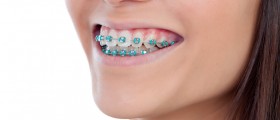

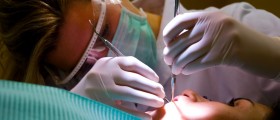
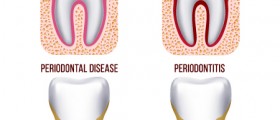


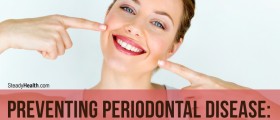


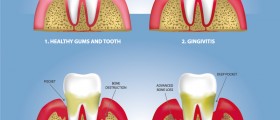



,-Don't-Ignore-Receding-Gums_f_280x120.jpg)
Your thoughts on this
Loading...